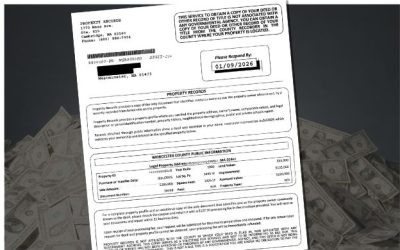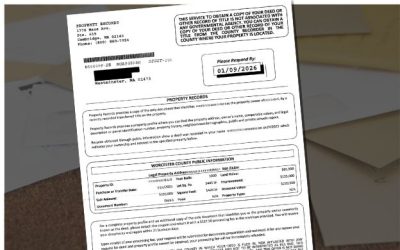
Jan 14, 2026 | Mortgage, Mortgage Lenders, Real Estate Agent Information, Real Estate Tips
How to Position the Conversation
Use January to shift from “market updates” to decision clarity.
You’re not predicting the market.
You’re helping clients pressure-test their plan.
That distinction matters.
Talking Points You Can Use Immediately
Reframe January as a Planning Window
“January is when the real costs of homeownership show up. Before we talk timing, I want to make sure the numbers still work for you.”
This positions you as a professional, not a hype messenger.
Address Insurance Early
(Before it Blows Up a Deal)
“Insurance is impacting approvals and affordability more than people realize. Let’s look at it now so there are no surprises later.”
This builds trust and prevents last-minute fallout.
Normalize Re-Running the Numbers
“Most people base decisions on last year’s costs. January is the right time to update everything.”
You’re giving permission to slow down — which actually speeds up good decisions.
Reassess Spring Expectations
“Spring markets reward preparation. January is where that preparation happens.”
This keeps you aligned with long-term outcomes, not rushed listings.
What This Does for You as an Agent
- Positions you as calm, credible, and strategic
- Reduces failed transactions later
- Improves listing quality and buyer readiness
- Builds loyalty through honesty
You’re not selling urgency.
You’re selling clarity.
Providing title, escrow, closing and settlement services to clients throughout Massachusetts and New Hampshire

Nov 13, 2025 | Home Buyer Tips, Home Seller Tips, Mortgage
Historically, “all-cash” sales or transfers to trusts or legal entities (rather than individuals) have been hotbeds for money-laundering and illicit financing. FinCEN has been tracking these via Geographic Targeting Orders (GTOs) for certain metros.
Now the scope is broadening. The final rule requires certain “reporting persons” (title companies, closing attorneys, settlement agents) to file a Real Estate Report when a residential property is transferred without a regulated financial institution mortgage and the buyer is an entity or trust.
For sellers, that means your transaction may be subject to extra scrutiny—even if you’re not the buyer.
What sellers should watch for
- Is the buyer an LLC, trust, corporation or other entity rather than an individual? If yes → higher risk of reporting.
- Is the property being transferred without a traditional bank-backed mortgage (i.e., all-cash or private financing)? If yes → reporting likely.
- Does your closing involve a title or settlement agent, or other professional who will be the “reporting person”? If so, they may request extra documentation.
- Timing & records: The rule requires that reports be filed within the later of (a) the end of the month after closing or (b) 30 calendar days.
- Documentation retention: The reporting person must retain certifications for five years.
Pre-listing checklist for sellers
- Ask your listing agent or closing attorney: “Does the buyer entity trigger the new rule?”
- Ensure you have full, transparent documentation of your own transaction (seller identity, funds of sale, chain of title) to avoid look-back issues.
- If you’re selling via a trust or entity yourself (rather than a straightforward individual sale), expect the buyer and their professionals to ask questions. Be prepared with proper disclosures.
- If you’re marketing to cash buyers or investors that use LLCs/trusts, be aware: this may slow closing or require extra compliance steps.
Ask your closing professional how they will handle the “reporting person” designation and timing. Clarify whether you as seller may be asked for extra info.
Even though the effective date of some elements has been delayed (see below), the preparation window is now. Title companies, attorneys and escrow professionals are updating forms, shifting workflows and training staff. Sellers who treat this as “just another closing” risk being caught off guard, facing delayed close, additional fees or last-minute hold-ups.
Originally the rule was scheduled to go live December 1, 2025. However, the rule’s reporting requirements have been postponed until March 1, 2026.
Importantly: the existing GTOs remain in force and enforcement may continue in many jurisdictions.
Thus: selling in late 2025 means you’re operating in a transitional zone—don’t assume “business as usual.”
If you’re about to list a property, especially one being sold to an entity or trust, or being bought with all-cash, treat your closing as a compliance event. Ask the right questions early. If you anticipate transparency issues, align your team (agent, attorney, title company) now. That way you protect your timeline, reputation—and the transaction itself.
Staying Ready in an Uncertain Market
Whether you’re buying, selling, or refinancing, an experienced attorney helps safeguard your transaction. From rate-lock coordination to closing documentation, The Law Office of David R. Rocheford, Jr., P.C. ensures your real estate deal stays on track — no matter what direction the market moves next.
SOURCES
- FinCEN Residential Real Estate Rule fact sheet. https://www.fincen.gov/system/files/shared/RREFactSheet.pdf
- FinCEN delays implementation until March 2026. https://www.hklaw.com/en/insights/publications/2025/10/fincen-delays-residential-real-estate-transfer-reporting-rule
- Insights on real-estate closing professionals’ obligations. https://www.buchalter.com/insights/new-fincen-rule-on-transparency-reporting-in-residential-real-estate-closings
- Title industry overview of reporting obligations. https://www.oldrepublictitle.com/title-agents/fincen-reporting
Providing title, escrow, closing and settlement services to clients throughout Massachusetts and New Hampshire

Aug 21, 2025 | Home Buyer Tips, Home Buying Tips, Home Care Tips, Home Closings, Home Tips, Homeowner Tips, Housing Analysis, Mortgage, Uncategorized
They may represent just 3% of all buyers, but Gen Z is determined to change the game. Armed with FHA loans, side hustles, and family support, these resourceful buyers are targeting affordable regions — not Boston, but places like Grand Rapids and Salt Lake City. In New Hampshire and Massachusetts, they’re hunting for opportunity while carrying average personal debt over $94,000. Here’s how this rising generation is entering the market, and what lenders should know to meet them where they are.
Gen Z came of age during economic upheaval — the 2008 housing crash was their childhood backdrop, and the COVID-19 pandemic shaped their early adulthood. They’ve watched older millennials struggle with student debt and delayed homeownership. That history has made them cautious, debt-averse, and surprisingly strategic in their approach to buying.
Unlike previous generations, Gen Z doesn’t expect homeownership to happen overnight. They’re willing to rent longer, work side hustles, and lean on family support if it helps them break into the market when the timing is right.
Affordability is the single biggest obstacle standing in their way.
- Average debt load: over $94,000 per young adult.
- Median household income growth: stagnant compared to housing costs.
- Entry-level homes: scarce, especially in high-cost regions like Greater Boston.
In short, the math doesn’t always work. But that hasn’t stopped Gen Z from getting creative.
How They’re Making It Work
FHA and Low Down Payment Loans
With cash savings limited, FHA loans and other low down payment programs are Gen Z’s go-to tool. These options allow them to enter the market sooner, even if it means paying mortgage insurance.
Side Hustles and Multiple Income Streams
From freelance work to online businesses, Gen Z isn’t afraid to diversify income to qualify for a mortgage. Lenders who recognize alternative income streams — and can explain how to document them properly — gain a clear edge.
Family Support and Gifts of Equity
Parents and grandparents are playing a larger role, either through co-signing, down payment assistance, or equity transfers. These transactions often involve extra legal steps, which is where experienced closing attorneys keep everything compliant.
Targeting Affordable Regions
Gen Z is skipping the Boston condo market and looking north and west — from New Hampshire’s suburbs to smaller Massachusetts cities like Worcester. They want affordability, community, and remote-work flexibility more than urban prestige.
For lenders, winning Gen Z business means more than just offering a loan — it’s about meeting them on their terms.
- Be Digital-First: Mobile-friendly applications, virtual closings, and real-time status updates are table stakes.
- Expand Credit Access: Use VantageScore 4.0 and consider rent or utility payment histories for applicants with thin credit files.
- Educate and Simplify: Break down loan terms in plain English, offer first-time buyer workshops, and demystify the process.
- Focus on Entry Markets: Market lending products in regions where Gen Z is actually shopping, not just where the big headlines are.
Quick Lender Recommendations
- Highlight FHA and low down payment products
- Accept and explain alternative income sources
- Emphasize digital lending tools (portals, e-signatures, mobile updates)
- Promote credit-building strategies tied to VantageScore 4.0
- Offer first-time buyer education as part of your brand
Gen Z may be small in numbers today, but their determination is reshaping tomorrow’s market. They are resourceful, cautious, and fiercely committed to finding a way into homeownership — even when the odds seem stacked against them. For lenders, attorneys, and real estate professionals in Massachusetts and New Hampshire, understanding this generation isn’t optional. It’s the key to staying relevant.
At The Law Office of David R. Rocheford, Jr., P.C., we work alongside buyers, sellers, and lenders to ensure every deal — whether fueled by an FHA loan, family support, or creative structuring — is handled smoothly and compliantly.
Want to better understand the next wave of homebuyers? Contact us today
Providing title, escrow, closing and settlement services to clients throughout Massachusetts and New Hampshire
“I would highly recommend David as a closing attorney. I have known David and have been using his office for many years. David’s professionalism when dealing with me, my closing department and most especially my clients has been always exemplary.”
SENIOR LOAN OFFICER, SHAMROCK FINANCIAL SERVICES
“The Law Office of Attorney David R. Rocheford, Jr. is by far the most exceptional real estate law office that I have had the pleasure of working with. The professionalism is by far second to none.”
SENIOR LOAN OFFICER, SALEM FIVE MORTGAGE SERVICES
“Attorney David Rocheford has provided settlement and title services for me and Greenpark Mortgage several years. He has assisted all of my clients, including my family and friends with mortgage closings. Always providing excellent service. Reliable and trustworthy!”

Jul 17, 2025 | Home Mortgage, Housing Market, Mortagage Tips, Mortgage, Mortgage Tips, News, Real Estate
You’ve found your dream home in Massachusetts or New Hampshire. The offer is in, the inspection went smoothly, and closing day is in sight. But then—bam!—a title defect surfaces, and suddenly your seamless transaction feels more like a nightmare.
At The Law Office of David R. Rocheford, Jr., P.C., we know how crucial a clean title is to a successful closing. Here are five of the most common hidden title issues we see—and how our meticulous title services can keep your deal on track.
An old mortgage that was paid off but never officially released in the registry? It’s more common than you’d think. Without a proper discharge, the lender still technically holds a claim, and that can stop your sale cold.
Our solution: We identify undischarged mortgages early and work directly with lenders to obtain and record releases—no surprises on closing day.
Contractors, municipalities, and even HOA’s can place liens for unpaid debts. Whether it’s back taxes or a forgotten utility bill, these liens must be cleared before you take ownership.
Our solution: Our team runs comprehensive lien searches and coordinates payoff or discharge so your title is free and clear.
Easements and Boundary Disputes
That beautiful backyard? It may have a utility easement running through it—or worse, a neighbor disputing the boundary line. These issues can impact how you use the property.
Our solution: We’ll flag any recorded easements or encroachments and help you understand how they affect your rights as a buyer.
Clerical mistakes happen. A misspelled name, incorrect legal description, or filing error can create confusion over ownership and cloud your title.
Our solution: Our attorneys comb through public records and fix errors before they derail your deal.
Forged or Fraudulent Documents
Unfortunately, forged deeds and fraudulent transfers do exist. If someone in the property’s past didn’t legally own it, neither will you—until it’s resolved.
Our solution: Our title exams are designed to spot these red flags and protect you from costly legal battles later.
Why Title Matters—and Why We’re Your Best Ally
Your home is likely the biggest purchase of your life. Don’t let hidden title defects steal your peace of mind. At The Law Office of David R. Rocheford, Jr., P.C., we specialize in thorough title examinations, escrow services, and smooth closings for Massachusetts and Southern New Hampshire.
Let us handle the legal details so you can focus on your new chapter.
Providing title, escrow, closing and settlement services to clients throughout Massachusetts and New Hampshire
“I would highly recommend David as a closing attorney. I have known David and have been using his office for many years. David’s professionalism when dealing with me, my closing department and most especially my clients has been always exemplary.”
SENIOR LOAN OFFICER, SHAMROCK FINANCIAL SERVICES
“The Law Office of Attorney David R. Rocheford, Jr. is by far the most exceptional real estate law office that I have had the pleasure of working with. The professionalism is by far second to none.”
SENIOR LOAN OFFICER, SALEM FIVE MORTGAGE SERVICES
“Attorney David Rocheford has provided settlement and title services for me and Greenpark Mortgage several years. He has assisted all of my clients, including my family and friends with mortgage closings. Always providing excellent service. Reliable and trustworthy!”

Jun 19, 2025 | Around The Home, Around The Hoome, Artificial intelligence, Buying Real Estate, Chapter 7 Bankruptcy, Consumer Tips, Credit Scoring, Fair Housing, Federal Reserve, FHFA, Financial Crisis, Financial Fraud, Financial Reports, Foreclosure, Happy Thanksgiving, Holidays, Home Building Tips, Home Buyer Tips, Home Buying Tips, Home Care, Home Care Tips, Home Closings, Home Decorating, Home Financing Tips, Home Maintenance, Home Mortgage, Home Mortgage Tips, Home Seller Tips, Home Selling Tips, Home Tips, Home Values, Homebuyer Tips, Homeowner Tips, Housing Analysis, Housing Market, Interesting Stuff, Investment Properties, Legislation, Market Outlook, Mortagage Tips, Mortgage, Mortgage Guidelines, Mortgage Lenders, Mortgage Rates, Mortgage Tips, mortgage-rates-whats-ahead-september-17-2012, News, Organization Tips, Personal Finance, Probate Law, Rankings, Real Estate, Real Estate Agent Information, Real Estate Definitions, Real Estate Tips, Real Estate Trends, Realtors, Selling Real Estate, Selling Your Home, Short Sales, Statistics, Success, Taxes, The Economy, Title Insurance
Whether you’re buying with cash, investing from abroad, transferring property to a family member, or just trying to close without a headache, you’ll want to know what can trigger federal scrutiny — and how to stay off the radar.
From flagged wire transfers and shell companies to gift-of-equity sales and land near military zones, this isn’t your average title-and-keys situation.
It’s real estate with a side of national security, tax enforcement, and financial crime prevention.
Is Big Brother Watching Your Home Sale?
What Buyers and Sellers Should Know About Federal Oversight
You’re Not Paranoid — They Might Actually Be Watching
What you didn’t know on how federal agencies keep tabs on select real estate transactions.
Your Closing Packet Could Be a Federal File
How Your Paper Trail Might Raise Red Flags — And What You Can Do About It
What the FBI, IRS, and Homeland Security
Could See in Your Closing Docs
We’re unpacking what agencies might spot inside your deal’s fine print.
Caught in the Crosshairs? What Triggers Federal Interest in Your Home Sale
The Top Red Flags That Could Invite a Closer Look from Washington
Cash, LLCs, or Land Near a Base? You Might Just Be a Target
The warning signs that put your deal on the government’s radar — and how to stay clear.
Follow the Money: How the IRS Tracks Financial Crimes Through Real Estate
From Unreported Income to Shell Game Schemes
— What IRS-CI Is Looking For
Your Closing Could Be an Audit Trigger — Here’s How the IRS Sees It
Explore the patterns, documents, and loopholes that turn ordinary deals into criminal cases.
Providing title, escrow, closing and settlement services to clients throughout Massachusetts and New Hampshire
“As a realtor, the Rocheford team went above and beyond to make sure my client was not only protected from a legal standpoint but also operated in a timely manner to execute the sale of my client’s dream home.
Thank you for the great experience for myself and my client! Looking forward to our next deal together!”
Realtor®
“I don’t usually use attorneys that often. But if an attorney is needed, I couldn’t recommend this law office enough. I always pride myself on responding quickly to emails and calls, but I was in awe of how fast paralegal Robert Heckman would respond to us. We sold our house a couple months ago and then did a two-part land swap with neighbors and my folks, and both transactions were seamless, including coming in to sign paperwork.
In short, if you need a law office that is responsive and attentive to detail, definitely consider them!”
Leominster, MA
“Excellent, conscientious and professional.
The communication throughout our Real Estate transaction was better than expected. We thought the fee to be very reasonable considering the work accomplished on our behalf. The law office handled the entire closing without us having to be in attendance….as we requested. I have had experience with very competent lawyers and law firms as the result of my previous profession. I would place this law office right up there among the best in their real estate field of expertise and surprisingly at very reasonable and affordable rates/fees.”
Buzzards Bay, MA

Jun 19, 2025 | Federal Reserve, Financial Fraud, Home Buyer Tips, Home Mortgage, Homebuyer Tips, Mortgage, Realtors, Selling Real Estate, Selling Your Home, Taxes, The Economy
Your Closing Could Be an Audit Trigger — Here’s How the IRS Sees It
When most people think of the IRS, they imagine audits and paperwork — not criminal agents working alongside the FBI and Homeland Security. But the IRS-Criminal Investigation Division (IRS-CI) is a powerful enforcement arm of the federal government, and real estate is one of its favorite trails to follow.
From luxury home purchases with unexplained funds to “gifted” equity that isn’t reported properly, the IRS-CI routinely uncovers criminal tax activity by analyzing real estate transactions. If you think your closing statement is just a formality — think again.
Real Estate as a Laundering Tool: Clean Property, Dirty Money
One of the most common IRS-CI cases involves individuals or entities using real estate to hide the source of illicit income.
Common Red Flags:
- Homes purchased with cash not supported by reported income
- Funds layered through multiple entities or relatives
- Repetitive buying and selling at inflated or deflated prices
Learn how IRS-CI tracks financial crimes through real estate
“Gift of Equity” Deals with Missing Paper Trails
It’s common in family-to-family sales to offer a discount — a “gift of equity.” But when these transfers aren’t properly documented, they can flag problems on both income tax and gift tax returns.
Triggers Scrutiny When:
- No gift letter is included in the mortgage or closing file
- Gift exceeds the annual IRS gift exemption and is not reported via Form 709
- Property is sold well below market value without explanation
IRS explanation of gift tax rules: When does a gift of equity trigger tax obligations?
Structuring or Smurfing Through Real Estate
IRS-CI also tracks “structuring,” also known as smurfing — where large sums of cash are broken into smaller amounts to avoid bank reporting thresholds.
How it Appears in Real Estate:
- Multiple down payments from different accounts or people
- Several transfers under $10,000 leading up to a purchase
- Sudden influx of funds from unrelated sources close to closing
These patterns are especially suspicious in all-cash or entity-based purchases.
Shell Companies and Fake Deductions
If the property is being purchased or sold through an LLC or trust, the IRS wants to know who actually controls the asset — especially when tax deductions or depreciation are claimed.
Triggers Scrutiny When:
- Owner hides behind multiple corporate layers
- Rental property expenses are exaggerated or fabricated
- Pass-through income isn’t declared properly
FinCEN’s Corporate Transparency Act ties directly into this enforcement
Review new rules on beneficial ownership disclosure
What This Means for Buyers, Sellers, and Agents
Whether you’re transferring a condo to your niece or selling a vacation home at a discount, the IRS-CI may see more than you expect. And in complex deals — especially those involving cash, gifts, or multiple parties — you could easily trigger review without realizing it.
IRS-CI agents don’t conduct routine audits — they build criminal cases. Your best protection is documentation, legal accuracy, and transparency.
Don’t Let a Paper Mistake Become a Tax Investigation
At The Law Office of David R. Rocheford, Jr., P.C., we guide every transaction with tax compliance in mind. Whether you’re transferring property to family, buying with equity, or structuring a trust sale — we help you stay within IRS guidelines and out of trouble.
Providing title, escrow, closing and settlement services to clients throughout Massachusetts and New Hampshire
“I would highly recommend David as a closing attorney. I have known David and have been using his office for many years. David’s professionalism when dealing with me, my closing department and most especially my clients has been always exemplary.”
SENIOR LOAN OFFICER, SHAMROCK FINANCIAL SERVICES
“The Law Office of Attorney David R. Rocheford, Jr. is by far the most exceptional real estate law office that I have had the pleasure of working with. The professionalism is by far second to none.”
SENIOR LOAN OFFICER, SALEM FIVE MORTGAGE SERVICES
“Attorney David Rocheford has provided settlement and title services for me and Greenpark Mortgage several years. He has assisted all of my clients, including my family and friends with mortgage closings. Always providing excellent service. Reliable and trustworthy!”





















